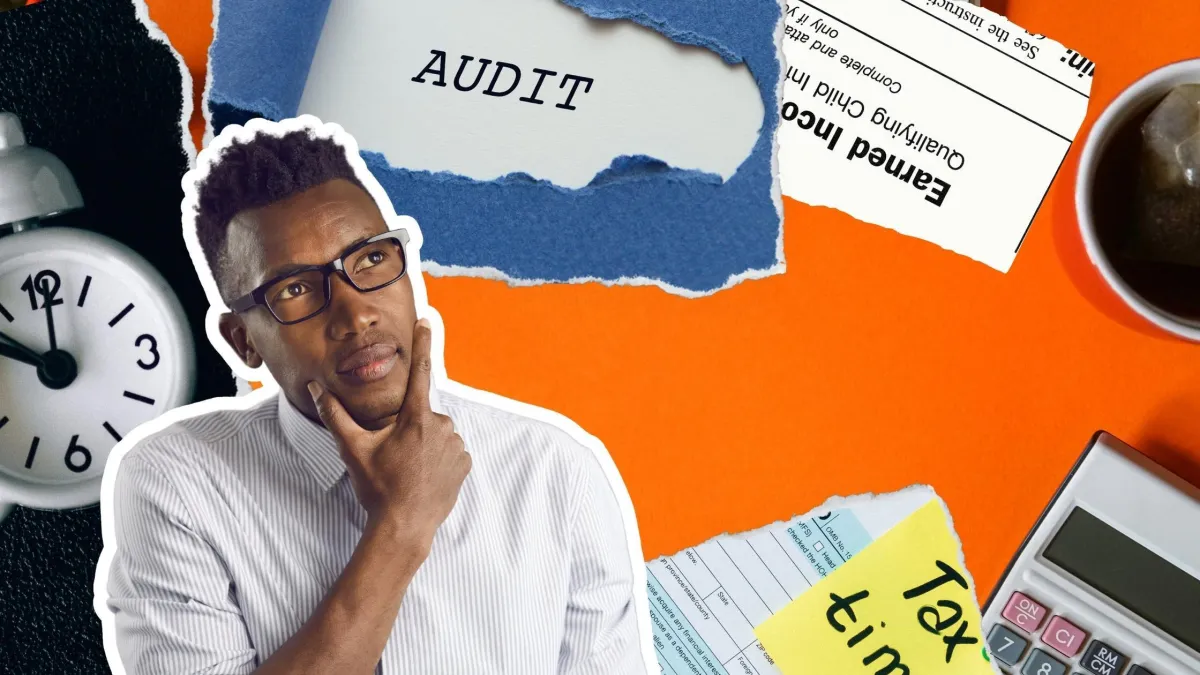
- Home
- About Us
- Our Services
- Tax Services
- Self-Employed & Freelancers
- State Tax Filing Software
- Cloud-Based Software
- Bookkeeping Software
- Partnership Tax Filing
- IRS Audit Assistance
- IRS Tax Debt Resolution
- Tax Preparation
- Built In Tax Calculator
- Automated Tax Calculation
- Irs e-filling Software
- Industry Tax Solutions
- Tax Liability Calculator
- U.S. Estate & Trust
- Expense & Deduction Tracker
- Our Packages
- Tax Dragon University
- Tax Dragon Plus (CRM)
- Contact Us
- Blog

Demystifying the Audit Process for Business Confidence
Demystifying the Audit Process: How Business Owners Can Navigate with Confidence
Navigating the intricate world of taxes can often feel like steering a ship through a turbulent sea, especially for business owners. The mere mention of the word “AUDIT” can be enough to stir a sense of unease. But what exactly does it entail?

When we talk about an audit, we're referencing an official inspection of your tax returns, either by the IRS or a state tax agency. These agencies inspect your documents either because they've found an error or they need more information. It's essential to realize that the likelihood of being audited is relatively low; with less than 1% of tax returns being subjected to this process. Yet, regardless of the percentage, the best approach is always to be prepared and informed.
So, who typically faces these audits? Interestingly, both ends of the income spectrum are most at risk: those with an income of 10 million or more and those with zero declared income. Other triggers for audits could be as random as having a business partner audited, or more systemic issues, such as discrepancies that don’t pass the so-called "sniff test".
It begs the question: how can business owners reduce their chances of being audited? Simple steps can have a significant impact:
Double Check: A large portion of audits is a result of human errors. By double-checking your forms, especially crucial documents like the 1099, you can significantly reduce the risk of discrepancies.
Report All Income: Unreported income is a red flag for the IRS. Ensure that every cent is accounted for.
Keep Deductions Business-Oriented: While it's tempting to claim personal expenditures, separating your business and personal deductions will make your returns less suspicious and more streamlined.
Now, you might be wondering how to manage all this effectively without becoming overwhelmed. This is where robust tax software solutions like TaxDragon Pro subtly come into play. Think of it as your navigator through these tumultuous tax waters. It's not merely about crunching numbers; it's about having an intuitive system that ensures accuracy, clarity, and confidence in every step of your tax journey. With TaxDragon Pro, double-checking becomes a breeze, reporting all income becomes systematic, and separating business from personal becomes second nature.
To business owners reading this: tax season doesn't need to be synonymous with trepidation. By understanding the audit process and arming yourself with top-notch tools like TaxDragon Pro, you’re not just preparing your business for the tax season; you’re gearing up for success.
Intrigued? Want to turn tax challenges into straightforward tasks? Delve deeper and let TaxDragon Pro be your guide. Discover its utility and navigate your business taxes with unparalleled confidence. Explore TaxDragon Pro today.
Frequently Asked Questions
1. Why do people even get audited in the first place?
There’s no big mystery behind it. Sometimes it’s random, plain and simple. Other times, something small just doesn’t add up — maybe a number got entered twice, or an expense looks a bit off compared to your income. It’s not usually personal. The system just flags things that don’t quite line up, and someone has to take a closer look.
2. Should I be nervous if I get an audit notice?
Getting that letter can make your stomach drop, sure — but it doesn’t mean you’ve done anything wrong. Most audits are pretty routine. They might just want copies of a few documents or a bit of clarification. The best thing you can do is take a breath, stay calm, and handle it right away. People get into trouble more from ignoring it than from the audit itself.
3. Does using tax software actually make a difference?
Oh, for sure. When you’re doing your taxes by hand or late at night, it’s easy to miss something small — a number, a box, a deduction that’s not entered quite right. Software like Tax Dragon Pros is built to catch those things before you hit “submit.” It’s not a substitute for keeping good books, but it’s a really solid safety net that saves a lot of unnecessary headaches.
4. Are there any deductions that raise red flags?
A few of them do, yeah. Home office deductions, vehicle mileage, and big travel expenses tend to make the IRS look twice. That doesn’t mean you shouldn’t claim them — just make sure they’re legit and that you can prove it. If your receipts and records make sense, you’re fine. It’s only when numbers seem stretched that the IRS starts asking questions.
5. What’s the best way to stay audit-ready all year long?
Keep things neat as you go. Don’t mix business and personal spending — that’s where most people trip up. Save every single receipt, even for small stuff, because it adds up. And check your books every so often instead of waiting until tax season. That small habit makes life a lot easier when April rolls around.

